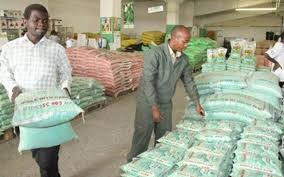
The Zimbabwean government reportedly owes seed companies more than US$200 million under the Presidential Inputs Scheme, which has triggered concerns among agricultural stakeholders.
Seed Companies are owed over $200 million, from 22/23 season, 23/24 season and 24/25 season.
Delays in payments have been disrupting planting seasons as well as impacting on the food security of the country.
Farmers rely heavily on timely access to quality seeds to ensure successful crop yields. The outstanding debts have led some seed companies to limit their operations or prioritize clients who can pay upfront, leaving many farmers in a precarious position, especially those that rely on government support.
The government is the biggest buyer of seed, which it distributes to smallholder farmers under programs such as the presidential input scheme. With no payment from their biggest customer, seed companies are defaulting on bank loans, laying off staff, and planning to scale back on production.
“Without access to seed, our chances of a successful harvest diminish significantly and we are informed that the government is yet to pay most seed companies. This is going to weigh down heavily on the availability of seed under the government support programmes,” a farmer based in Mashonaland East said.
Seed companies often rely on timely payments to maintain their operations and invest in research and development. The government’s financial obligations are critical for ensuring that farmers have access to quality seeds, which are essential for enhancing agricultural productivity.
A seed manufacturer who requested anonymity said the situation on outstanding payments, from the government was dire and required urgent attention.
- Zim fails US fiscal test
- Medical aid societies defend service charges
- Mystery buyer of diamonds outed
- Is the juice worth the squeeze?
Keep Reading
“The situation of non-payment by the government has crippled a lot of companies that have been supplying seed under the Presidential Inputs Programme. Some companies have already started laying off employees while some are cutting down on production,” the seed producer said.
“An urgent government intervention is required for this issue to be resolved because some companies like us supplying seed on a contract basis are suffering the most.”
The government last season got seed worth close to US$150 million and has been battling to pay for it, leaving producers in a crisis.
The Zimbabwe Seed Association, a grouping of seed companies, says its members are owed almost half of the payments for seed supplied to the government last season, while “nearly all” of the seed supplied for this current farming season has not been paid for.
“Seed companies cannot be trusted by banks anymore and access to cheap finance is now an uphill task,” said another producer.
Seed producers are unable to get the forex they need for imports such as hybrid seeds of sunflower and sorghums and parental seed, which they say helps localized certified seed production.
Efforts to get a comment from the Treasury boss George Guvamatanga were fruitless.
Fertiliser companies are also reportedly owed millions under the Presidential agriculture programme making it an industry wide issue that is slowing throwing players in bankruptcy.










